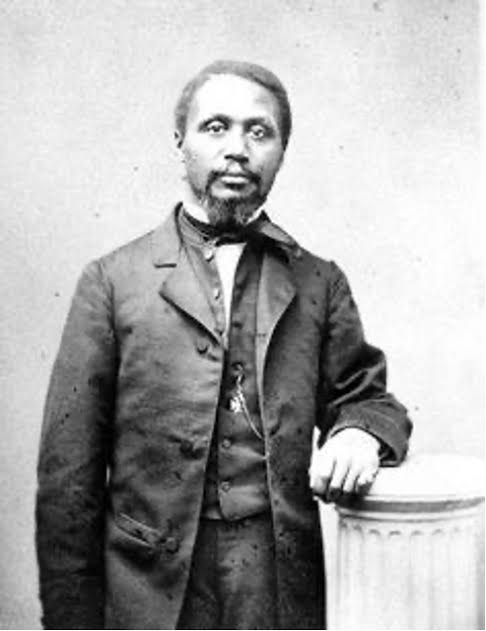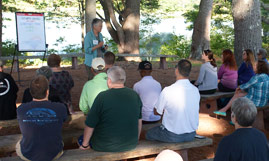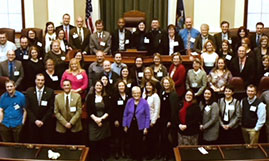Measures of Growth Indicator in Action: Racial Income Equity
Racial Income Equity is one of the 31 key economic indicators featured in the annual Measures of Growth Report. Each month this blog features a story that connects the data to real-life experience.
As Maine and the entire nation honor Black History Month, and in hopes that Mainers will continue to work toward a truly equitable and inclusive Maine economy every day of every month we are highlighting Racial Income Equity as the current Indicator in Action.

Maine history is rich with the economic and cultural contributions of our Black brothers and sisters, among them Macon Bolling Allen, who was admitted to the Maine Bar in 1844 making him the first licensed Black lawyer in the entire United States.
Allen was born a free man in Indiana in 1816. At the time, in the pre-Civil War era, the only avenue open to Black Americans who wanted to become lawyers was to teach themselves law and gain legal skills by serving as an apprentice and/or law clerk to practicing white lawyers. For Allen, that involved a move to Maine where he apprenticed with General Samuel Fessenden.
In a 2021 presentation, Bob Greene, a historian with Osher Lifelong Learning Institute at University of Southern Maine, shared the story of Allen’s experience in Maine.
“[Allen] moved to Portland and studied law, working as an apprentice to Samuel Fessenden, a local abolitionist and attorney. The Portland District Court rejected Fessenden’s first motion to admit Allen to the bar in April 1844, concluding Allen did not meet the state’s citizenship requirement (being a resident of Massachusetts at the time). [Allen] tried again, pursuing admission by examination, a method that did not require citizenship. He faced a hostile examination committee, which Fessenden thought did not want Allen admitted. Nevertheless, Fessenden said, ‘his qualifications were not denied.’ Allen was granted his license to practice law in Maine on July 3, 1844, becoming the nation’s first African American lawyer.” – Bob Greene, Historian, Osher Lifelong Learning Institute at USM.
Imagine what Macon Bolling Allen and fellow Black Mainers could have achieved and contributed if they had been able to thrive and prosper in a truly equitable and inclusive Maine culture and economy?
Efforts to build and sustain such a culture and economy continue to this day, and require ongoing broad, deep, and long-term systemic change. The independent, non-partisan Maine Economic Growth Council, which MDF staffs and works with to produce the annual Measures of Growth Report, strongly believes that Maine will need the contributions of every resident to achieve a vibrant, sustainable economy. Increasing prosperity is not true progress unless it is equitably shared.
For example, as highlighted in the 2023 Measures of Growth Report, in 2017-2021, the average incomes of BIPOC (Black, Indigenous, People of Color) and Latino or Hispanic Mainers rose 3% but remained 31% below those of White Mainers, dramatically short of full equity.
This stark racial/ethnic income disparity is similar to that found in New England and the United States. To counter it, Maine must improve access to training and education for residents of color, better support their communities and businesses, and address cultural biases and systemic disadvantages.
To dig into the data and how it intersects with Maine’s economy as a whole, click here for our Measures of Growth Report, and here for Racial Income Equity specifically.







